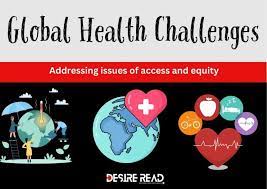The Economics of Healthcare: Understanding Costs and Access
Introduction
The landscape of healthcare is not only shaped by medical advancements and patient care but is equally influenced by the economic forces governing costs and access. In this exploration, we delve into the intricacies of healthcare economics, deciphering the factors that contribute to the rising costs of healthcare and examining the dynamics of accessibility.
Medical Advancements
One of the driving forces behind the escalating costs of healthcare is the continuous stream of medical advancements. While these breakthroughs undoubtedly improve patient outcomes, the research, development, and implementation of cutting-edge technologies and treatments come at a significant financial investment.
Administrative Expenses
The administrative side of healthcare, involving billing, insurance claims, and regulatory compliance, contributes substantially to overall costs. Simplifying and streamlining these administrative processes could potentially alleviate financial burdens on healthcare systems.
Pharmaceutical Costs
The soaring prices of pharmaceuticals constitute a major component of healthcare expenses. The research, development, and production of new drugs, combined with the protection of patents, contribute to the high costs associated with many medications.
Aging Population
As populations age, there is a natural increase in the demand for healthcare services. The elderly often require more extensive and specialized care, leading to a higher overall expenditure on healthcare.
Insurance Coverage
The availability and adequacy of health insurance play a pivotal role in determining access to healthcare services. Individuals with comprehensive insurance coverage are more likely to seek timely medical care, preventing health issues from escalating and becoming more costly to treat.
Socioeconomic Factors
Socioeconomic status is a significant determinant of healthcare access. Individuals with lower incomes may encounter barriers such as limited transportation, inability to take time off work, or lack of awareness about available services, hindering their ability to access healthcare.
Geographic Location
Access to healthcare services can vary based on geographic location. Rural areas often face challenges such as fewer healthcare facilities and medical professionals, making it harder for residents to access timely and adequate care.
Cultural and Language Barriers
Cultural differences and language barriers can create obstacles to healthcare access. Addressing these issues by promoting cultural competence and providing multilingual services is crucial for ensuring equitable access to healthcare.
Telehealth and Telemedicine
Technological advancements have given rise to telehealth and telemedicine, offering innovative solutions to improve healthcare access, especially in remote or underserved areas. Virtual consultations and remote monitoring can bridge gaps in care, enhancing accessibility.
Electronic Health Records (EHR)
The adoption of electronic health records has streamlined healthcare delivery and reduced administrative inefficiencies. Access to comprehensive patient information enhances the quality and coordination of care, ultimately benefiting patients and healthcare providers.
Affordable Care Act (ACA)
The Affordable Care Act in the United States aimed to increase access to healthcare by expanding Medicaid, implementing insurance marketplaces, and prohibiting insurance denials based on pre-existing conditions. Evaluating the impact of such policies is essential in understanding their effectiveness and guiding future reforms.
Global Healthcare Systems
Examining healthcare systems around the world provides valuable insights into different models of healthcare delivery. Countries with universal healthcare systems often demonstrate higher accessibility, but they also face unique challenges that warrant consideration in the ongoing discourse on healthcare reform.
Conclusion
The economics of healthcare is a multifaceted puzzle, where the pieces of rising costs and access intricately interlock. Striking a balance between the financial sustainability of healthcare systems and ensuring equitable access to quality care is an ongoing challenge.
Efforts to enhance healthcare economics should focus on improving efficiency in administrative processes, addressing socioeconomic disparities, leveraging technology for broader access, and evaluating the impact of healthcare policies. By fostering a comprehensive and inclusive approach, societies can progress toward a healthcare system that not only manages costs but also prioritizes accessibility, ensuring that quality care is within reach for all
